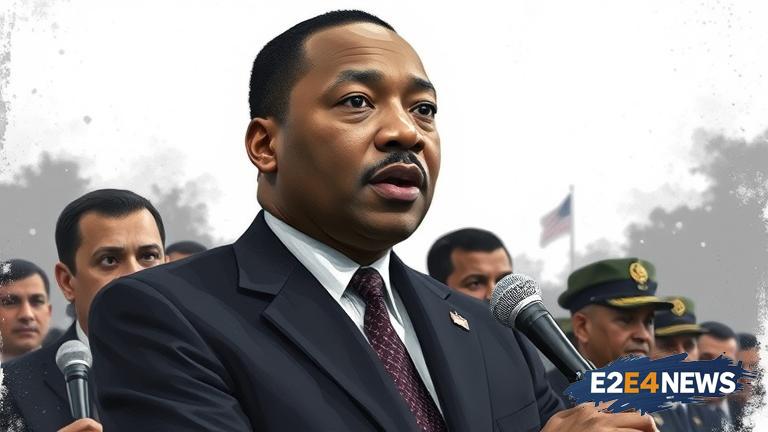The Trump administration has made the controversial decision to release previously classified FBI records related to Martin Luther King Jr., a move that has been met with strong opposition from King’s family. The records, which were released on July 21, 2025, provide insight into the FBI’s surveillance of King during the 1960s. The FBI had been monitoring King’s activities, citing concerns over his alleged ties to communism. However, King’s family has long maintained that the FBI’s actions were unjustified and motivated by racism. The release of the records has sparked widespread debate, with many arguing that it is an invasion of King’s privacy and an attempt to tarnish his legacy. Others have argued that the release of the records is necessary to provide a more complete understanding of King’s life and the historical context in which he lived. The records include documents related to the FBI’s investigation into King’s alleged infidelities, as well as his connections to suspected communists. King’s family has expressed outrage over the release, stating that it is a betrayal of their trust and an attempt to smear King’s reputation. The family had previously requested that the records be sealed, citing concerns over the potential harm that they could cause to King’s legacy. Despite their opposition, the Trump administration has chosen to release the records, citing the need for transparency and accountability. The move has been widely criticized, with many arguing that it is a politically motivated attempt to undermine King’s legacy. The release of the records has also sparked concerns over the potential impact on King’s family, who may be forced to relive painful memories as a result of the release. The FBI’s surveillance of King was a major controversy during his lifetime, with many arguing that it was an attempt to intimidate and silence him. The release of the records has brought this controversy back into the spotlight, with many calling for greater accountability and transparency from the FBI. The Trump administration’s decision to release the records has been seen as a departure from the Obama administration’s approach, which had chosen to seal the records in order to protect King’s legacy. The release of the records is likely to have significant implications for King’s legacy, as well as for the broader conversation around issues of privacy, surveillance, and accountability. As the debate over the release of the records continues, it is clear that the legacy of Martin Luther King Jr. remains a highly contested and deeply sensitive topic. The release of the records has also raised questions about the role of the FBI in monitoring the activities of civil rights leaders, and the potential consequences of such surveillance for social justice movements. Furthermore, the release of the records has highlighted the ongoing struggle for transparency and accountability in government, and the need for greater protections for the privacy and civil liberties of all citizens.
